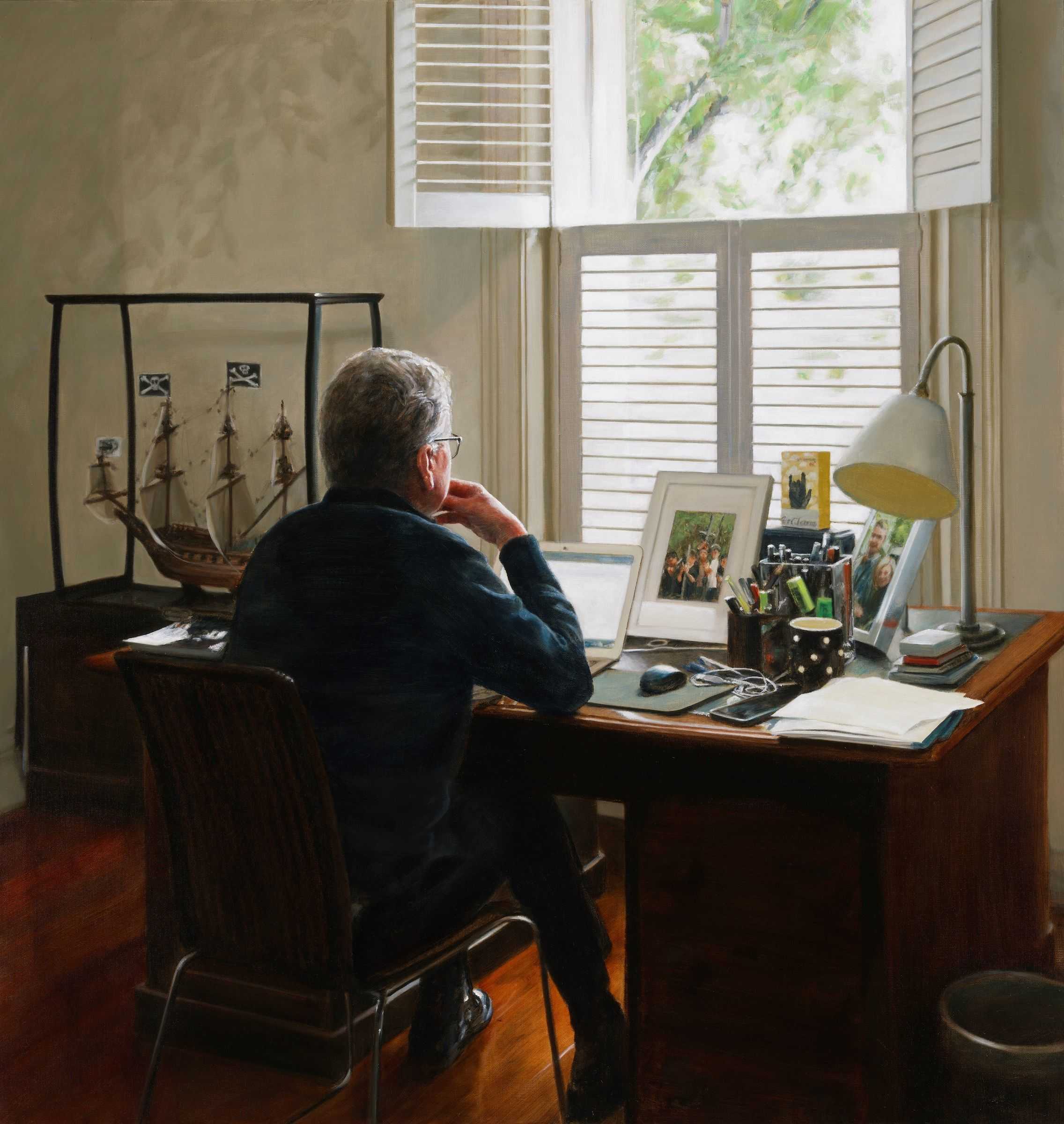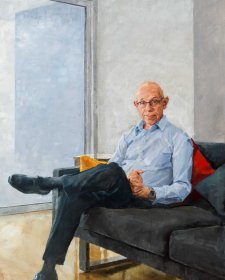Peter Goldsworthy AM (b. 1951), medical doctor and writer, was born in Minlaton, South Australia, and grew up in various country towns as his father, a school teacher, moved for work. Goldsworthy studied medicine at the University of Adelaide, and after graduating in 1974 worked in drug and alcohol rehabilitation while starting to write. His first book of poetry, Readings from Ecclesiastes, won the Commonwealth Poetry Prize for a debut collection, the South Australian Premier’s Award, and was joint winner of the Fellowship of Australian Writers’ Anne Elder Poetry Award in 1982. His first book of short stories, Bleak Rooms, was published in 1988 and his debut novel, Maestro, appeared the following year. Shortlisted for the Miles Franklin Award, Maestro was adapted for the stage in a collaboration between Goldsworthy and his daughter Anna, a concert pianist. Subsequent works include the novels Honk If You Are Jesus (1992), Wish (1995) and Three Dog Night (2003), which won the FAW Christina Stead Award, and Everything I Knew (2008), which was shortlisted for the Prime Minister’s Literature Award. His works have been translated widely, and four have been adapted for the stage, as has the short story The Kiss. Also an essayist and screenwriter, Goldsworthy wrote the libretti for Richard Mills’ operas Summer of the Seventeenth Doll and Batavia, the latter winning him and Mills the 2002 Helpmann Award for the best new Australian work, and a Green Room Award for special creative achievement. His most recent collection of short stories, Gravel (2010), was shortlisted for the ASAL Gold Medal. His Stupid Boyhood: a Memoir was published in 2013. The stage adaptation of Jesus Wants Me For A Sunbeam (1993) is taking place in 2018. The Minotaur, his first novel in a decade, and an opera based on the lives of Ned and Ellen Kelly (written with the composer Luke Styles), are appearing in 2019.
Deidre But-Husaim
‘Traditionally a portrait is expected to depict only the face or head and shoulders of the subject. When painting Peter I wanted to represent more than just his appearance, I wanted to convey the process of trying to bring a thing or an idea into being – a peek at the process and space that is inhabited between the person and resulting end point that we are not usually privy to. I wanted to offer a glimpse of the inner private world of Peter alone with his imagination, all unformed possibilities before him.’
Deidre But-Husaim (b. 1959), based in Adelaide, South Australia, undertook her formative art study at the Adelaide Central School of Art, where she has since taught painting. After some years’ travel, exhibiting and working independently, she completed her degree through Adelaide Centre for the Arts in 2006. Since then, in a number of portraits of both notable Australian public figures and ‘unknown’ subjects, she has sought to explore the dichotomy of the public and private self. Her work has featured in solo and group exhibitions in Melbourne, Adelaide and Sydney, and has been selected for exhibition in the Doug Moran Portrait Prize, the Portia Geach Memorial Award, the Sulman Prize, the Waterhouse National Science Art Prize, the Archibald Prize, the Sunshine Coast Art Prize, the Albany Art Prize, the Arthur Guy Memorial Painting Prize and the Geelong Contemporary Art Prize. In 2014 she became the first artist chosen to undertake a Guildhouse Collections Project at the Art Gallery of South Australia, producing a quiet series of paintings of people engaging with artworks in the Gallery. She won the Kennedy Arts Foundation Award for her work The Ineffable in 2016. But-Husaim’s work is held in public and private collections throughout Australia.
Commissioned with funds provided by Jillian Broadbent AO and Dr Helen Nugent AO 2018

















